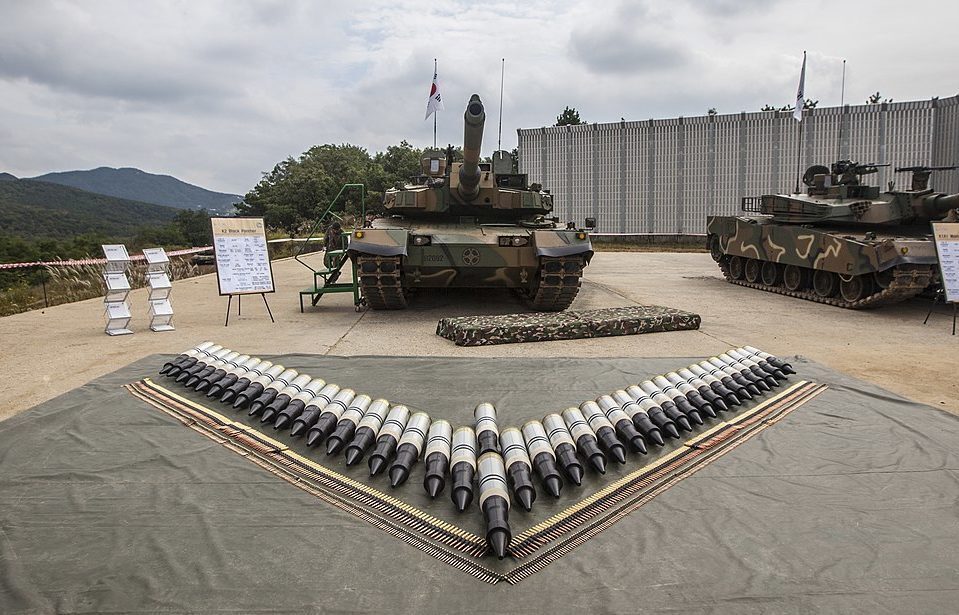Situated in close proximity to its northern counterparts, South Korea consistently maintains a state of readiness, recognizing the potential for conflict. The leader of North Korea, Kim Jong-un, often emphasizes the looming threat of action, prompting South Korea to design and cultivate a robust military armed with cutting-edge vehicles and weaponry.
A standout in its formidable arsenal is the K2 Black Panther main battle tank (MBT).
Design and development of the K2 Black Panther
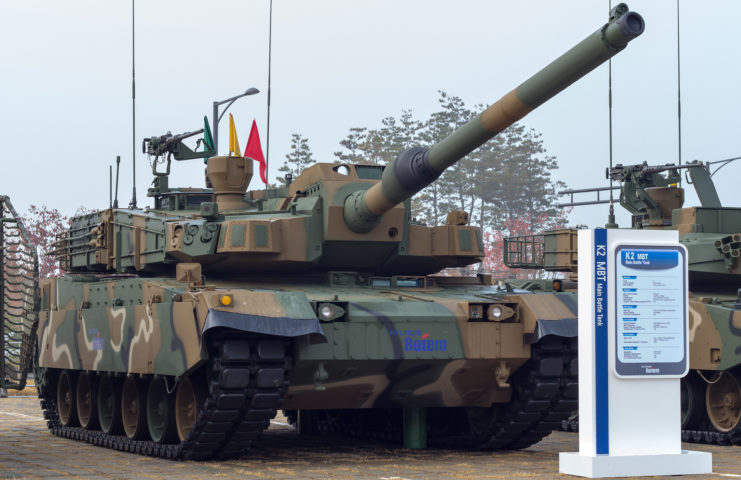
Having served as a steadfast ally of the United States and other NATO nations, South Korea had long depended on M48 Pattons. However, the aging nature of these tanks led the US Army to retire them in 1987.
In the early 2000s, South Korea recognized the need for a replacement for these outdated armored vehicles. Between 2003-07, the development of five prototypes for a new tank took place. The final one saw success and gained approval for production from the Defense Acquisition Program Administration (DAPA).
Nevertheless, certain issues, particularly related to the engine and transmission, needed to be addressed, causing a delay in the mass manufacturing of the tank.
Mass production of the K2 Black Panther
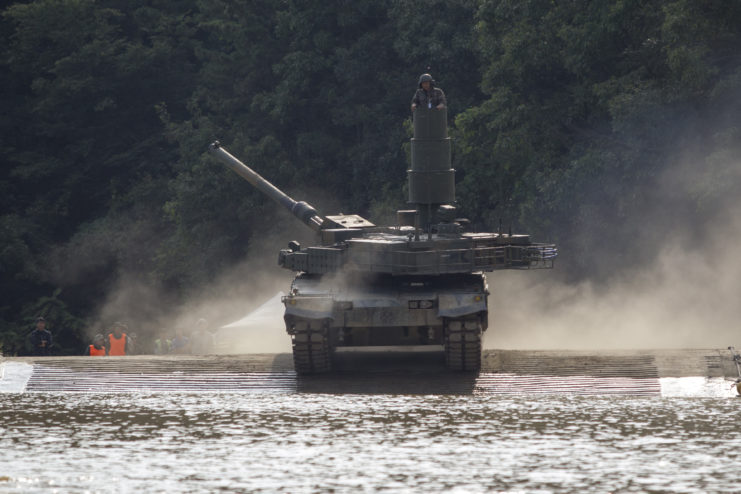
Commencing in 2013, the production of the K2 Black Panther employed German-manufactured MTU power plants to address persistent concerns about the tank’s transmission, as well as engine reliability and durability. By 2014, these armored vehicles were prepared for active service and started making appearances on the battlefield.
In December 2014, the responsibility for constructing the K2 moved to the South Korean company Hyundai Rotem, and this came at a substantial cost, with each unit carrying a hefty price tag of $8.5 million, making it one of the most expensive tanks currently in active service.
Impressive defensive capabilities
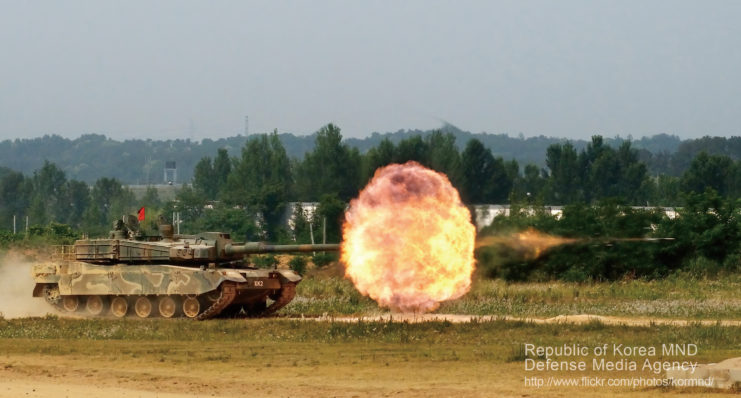
Being a relatively recent addition to the tank arsenal, the K2 Black Panther has an array of impressive capabilities. It’s equipped with a CN08 120 mm .55-caliber smoothbore gun, capable of firing up to 10 rounds per minute, and two machine guns: a 7.62 mm coaxial and a 12.7 mm K6.
The tank is further enhanced by an advanced fire-control system and a laser range finder, which empowers it to lock onto targets at distances of up to 6.1 miles. This multifaceted capability enables it to engage both ground-based adversaries and low-flying aircraft.
For added protection, the K2 Black Panther incorporates a robust steel shell that shields it from enemy fire, along with a radar system designed to detect incoming missiles and launch grenades to disrupt the trajectory of these projectiles. Inside the tank, a pressure and air conditioning system ensures the safety of its crew by safeguarding against biological and chemical threats.
Mobility of the K2 Black Panther
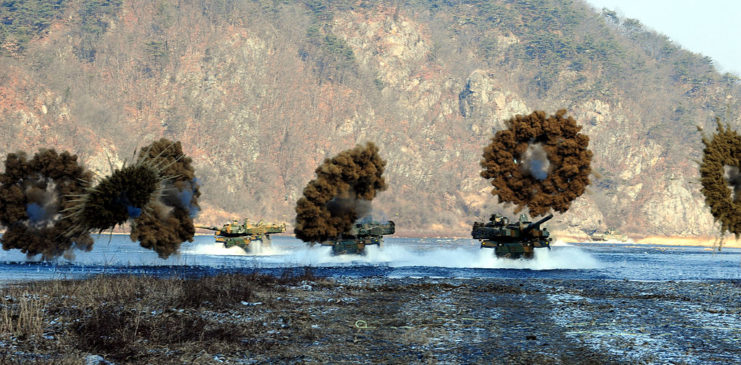
In addition to its defensive capabilities, the K2 Black Panther is also an impressive mover; the tank can travel at top speeds of between 43-44 MPH. Even while driving over rough terrain, it can reach up to 31 MPH. There’s also an innovative snorkel system, which allows it to cross rivers up to 4.1 meters deep.
The K2 features an in-arm suspension system, allowing it to “sit,” “stand,” “kneel” and “lean.” Those operating the tank can take advantage of these positions to fire munitions more accurately.
Use by other countries
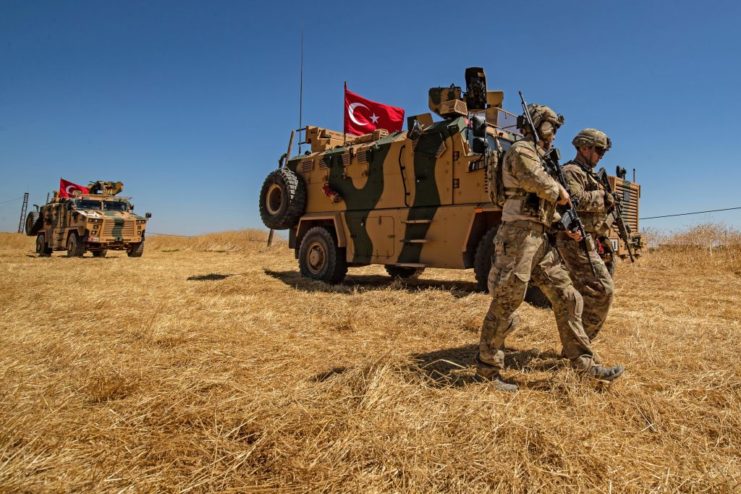
South Korea isn’t the only one taking advantage of the capabilities of the K2 Black Panther. The country’s government has also made deals with other nations to provide them with the tanks. The first was struck with Turkey in 2007. Under the $540 million deal, the Turkish military received a license for the K2, along with the delivery of 40 KAI KT-1 Woongbi training aircraft. While Turkey is building K2s, the nation is importing parts from South Korea.
More from us: BMPT Terminator: Russia’s Supposedly ‘Invincible’ Armored Fighting Vehicle
Poland has also struck a deal to acquire K2s. In July 2022, the country announced it had agreed to purchase 180 of the tanks from South Korea. Delivery of the vehicles is expected to occur between 2023-25.
